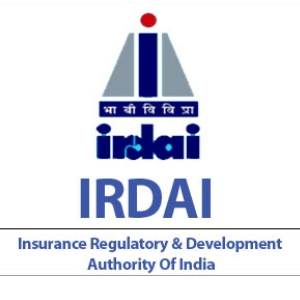 19-11-2020
19-11-2020
IRDAI draft: Standardised insurance covers for Dengue, Malaria and Chikungunya

 Insurance Alertss
Insurance AlertssIRDAI draft: Standardised insurance covers for Dengue, Malaria and Chikungunya
To make it easier for policyholders to understand the same product offered by multiple insurance companies, the regulator IRDAI has been releasing guidelines for standardised health and life covers.
Soon, you will now be able buy a standardised insurance cover – with common basic features – to cover your hospitalisation costs for vector-borne diseases such as Dengue, Malaria and Chikungunya. The IRDAI has released a draft paper that outlines how such a policy would look like. This standard product will be on the lines of Arogya Sanjeevani, a standard health insurance policy launched earlier this year. Corona Kavach and Rakshak, which are standard COVID-19-specific covers and Saral Jeevan Bima, a uniform term life insurance policy are other examples.
The workings
As the name suggests, vector-borne diseases refer to ailments that spread through carriers such as mosquitoes and parasites. Many insurance companies already offer disease-specific vector-borne ailment policies. But different companies’ policies have different product features and conditions. The IRDAI’s standard product will be offered by all health and general insurers, in addition to their existing products. The features will be common, but premiums will be determined by the insurance company. The insurance regulator’s proposal does not permit geographic location or zone-based pricing.
As per the IRDAI’s draft guidelines, the eight ailments that such a policy will cover include Dengue fever, Malaria, Filaria (Lymphatic Filariasis), Kala-azar, Chikungunya, Japanese Encephalitis and Zika Virus. The product, to be called Vector-borne Disease Health Policy, succeeded by the name of the insurance company, will cover any one or a combination of these listed diseases.
The policy will pay for hospitalisation due to only the listed vector-borne ailments after being diagnosed with one by a medical practitioner or through a laboratory test. Day-care procedures – treatment that would have ordinarily required hospitalisation, which is rendered unnecessary due to medical advancements – will also be covered. It will also pay for any relapse of the illness within 45 days of the date of last consultation with the hospital where the treatment was taken.
Know the restrictions
It is an indemnity-based policy – it will reimburse the expenses you actually incur up to the sum-insured limit. In this case, the sum insured can range from Rs 10,000 to Rs 2 lakh. Room rent, boarding and nursing charges will be paid for up to 2 percent of the sum insured, excluding cumulative bonus. In case the sum insured is lower than Rs 20,000, this sub-limit is fixed at Rs 500 per day. Intensive care unit (ICU) and intensive cardiac care unit (ICCU) expenses up to 5 percent (Rs 1,000 per day if the cover amount is under Rs 20,000) of sum insured (excluding cumulative bonus) will be covered. So, if you choose a hospital room whose rent exceeds these limits, you will have to shell out the balance amount from your own pocket. Since charges such as doctor’s fees and operation theatre costs are linked to room category, your overall outgo will be much higher.
IRDAI’s draft proposes a tenure of one year and a waiting period of 15 days. If you were to contract a listed vector-borne disease during the first 15 days from policy issuance, the insurance company will not bear the expenses. The policy can be offered as an individual or family floater cover, and also through the group platforms, which employers and other entities use to cover their employees and customers, respectively. You can renew the policy on its expiry and also move to another insurer if you wish to. For every claim-free year, you stand to earn a cumulative bonus of 5 percent, which can go up to 50 percent.
You also have the choice of buying two optional covers along with the main policy. Hospital cash benefit, where 0.5 percent of the sum insured, excluding cumulative bonuses, will be paid out per day of hospitalisation for up to 14 days after a ‘positive’ diagnosis. Another add-on policy is the diagnosis cover, which will hand out 2 percent of the sum insured, provided you are not hospitalised for the same illness within 15 days from the diagnosis. This will help individuals who have to incur expenses for treatment at home, but do not require hospitalisation.
The IRDAI has called for suggestions on this standard policy. If you have any suggestions to make, you can write to pankaj.sharma@irdai.gov.in by November 27, 2020.
Moneycontrol’s take
The key advantage with such disease-specific covers is that they are cheaper than regular health policies. However, if you can afford one, a regular health insurance policy will work better even if it means shelling out higher premiums. This is because it will cover most ailments, including vector-borne diseases. You might find this product a useful add-on to start with, if you are already covered under your employers’ group health cover. However, the room rent sub-limit waters down the utility of these policies even for such individuals. Given that it is a small-ticket product, simplicity ought to have been a key feature, but room rent sub-limits make it complicated.
